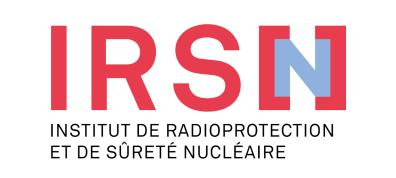IRSN Accademy (WIP)
The field of research has a long history of collaboration. The pooling of cultures, techniques, skills and resources has allowed the IRSN to enrich its own scientific approach to risk. Collaboration is a major element of the IRSN's activities since it encourages both effective and inventive research. The resources that are applied and the results that are obtained, discussed and peer-reviewed are a source of dialogue within the scientific community thereby helping develop wider and stronger networks. For researchers at the IRSN, such collaboration is also one of the ways in which they gain recognition within this same scientific community. With the ever increasing complexity and scope of research into nuclear safety and radiation protection, the IRSN is turning more and more towards Europe for the purposes of its collaborations.
Take initiatives to consolidate national, European and international research on nuclear and radiological risks.
In order to initiate pioneering scientific programs that address challenges over the medium to long term, an active, consistent involvement of the Institute in scientific developments both in France (in particular within the national research Alliances) and abroad will be fostered. The scientific cooperative partnerships initiated by the Institute should enable it to make best use of national, European and multilateral instruments such as the European technical platforms, or the international research agreements such as those managed within the framework of the OECD/NEA, the European Commission or the IAEA.
The appropriate scientific expertise and sufficient resources must be allocated to the areas where IRSN seeks to be an acknowledged player. Being a major player means being directly involved in the implementation of large-scale scientific programs (particularly of the research type), within the framework of potential alliances.
Develop academic partnerships and participate actively in the national research Alliances.
A key aspect of the scientific strategy of a technical safety organization (TSO) operating in the research field lies in the quality of its national/international academic partnerships. IRSN intends to continue to develop its already well-established partnership strategy with teams providing high added value on upstream topics of interest to it. This includes within the framework of joint research units, when such a framework proves to be best suited to developing, steering and giving visibility to the joint research work. The Institute also ensures that it is active in the national research Alliances, giving priority to the following points:
- the relevance and scientific performance/visibility of the teams with which it works to set up consortia,
- establishing framework agreements wherever necessary, subject to effective monitoring (sitting on the governance bodies), in order to foster exchanges (topics, people),
- helping to define research goals in order to guide collaborative academic work,
- using this collaborative work to foster access to external resources (experimental platforms, calculation tools, basic data, specific skills) and to open up our platforms.
Develop cooperation with manufacturers, nuclear operators and stakeholders in the medical sector wherever necessary.
Excluding issues on which it deems that it needs to work independently, IRSN keeps up strong scientific ties with industry, nuclear operators and the medical sector in accordance with its ethics charter. In its approach, the Institute sets itself the following priorities:
-
ensure that it has field knowledge of the safety, security and radiation protection issues facing manufacturers and operators and that it shares the major challenges of future industrial developments,
-
make efforts to obtain the data needed to validate the calculation tools used in confirmation assessments,
-
raise awareness of the challenges among these stakeholders and give them the benefit of its knowledge in this area,
-
maintain a clearly defined joint collaborative framework for the purpose of undertaking targeted scientific work on research topics of joint interest,
-
offer the innovative results of this work to the relevant economic stakeholders.
